News
Report outlines how the US interfered with marketing restrictions on formula across the globe
18 Apr 2024A recent investigative report by ProPublica unmasked the extensive interference by the US government in international regulations concerning the marketing of formula.
The report details how Thailand and other developing countries trying to safeguard the health of children attempted to regulate formula marketing. These efforts were thwarted by the US government, which repeatedly advanced the interests of multinational baby formula companies.
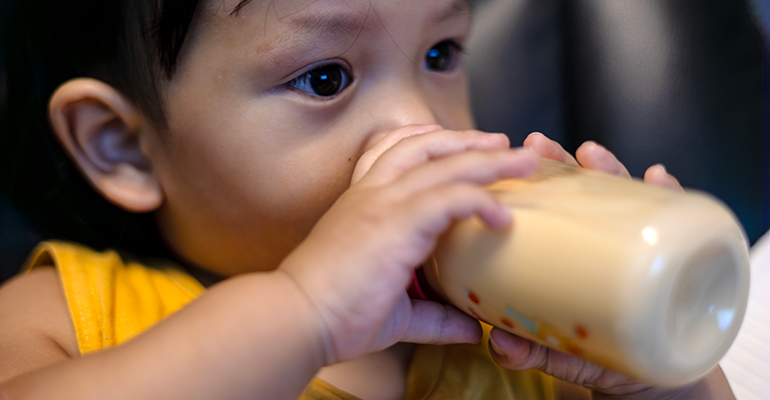
Thailand’s attempt to halt advertising met with lodged criticisms from the US
In 2017, health experts in Thailand attempted to halt aggressive advertising for all types of formula, including toddler formula, the report says, fearing that promotions could mislead parents and convince mothers to forgo breastfeeding – rates that were already among the lowest in the world.
In response to these attempts, officials at the US Department of Agriculture's (USDA) Foreign Agricultural Service (FAS) delivered a letter to Thai authorities asking “pointed” questions about the proposed legislation, according to ProPublica, and lodging criticisms in a bilateral trade meeting with the Thai government and on the floor of the World Trade Organization (WTO).
Despite its concerns about misleading marketing and low breastfeeding rates, ProPublica said the Thai government ultimately relented, banning advertising for infant formula, but allowing marketing for toddler formula.
During an interview for the report, former adviser to Thailand’s health minister, Dr Siriwat Tiptaradol, expressed upset and disappointment in the government's decision to back down. He said: "Our law is really weak, and enforcement is really weak."
Ingredients Network contacted the USDA FAS for its response to the ProPublica report but did not receive any comments in time for publication of this article.
Low breastfeeding rates in Thailand
A July 2023 UNICEF-supported survey found that around 29% of Thai mothers exclusively breastfed their babies during the first six months of life. This is up 14% from 2019 but is still far below the Global Nutrition Target of 50% by 2025.
Breastfeeding is promoted as the best source of nourishment for infants and young children and is one of the most effective ways to ensure a child's health and survival, according to the World Health Organization (WHO).
“Meddling” by the US government uncovered in 2018
The “meddling” by the US government was first exposed in 2018 after officials from the Trump administration were accused of threatening to withhold military aid to Ecuador unless the country dropped its proposed resolution in support of breastfeeding at the WHO.
The ProPublica investigation uncovered decades-long efforts by the US government to undermine public health initiatives in numerous countries while advancing the interests of multinational formula companies. US agencies intervened in around 17 jurisdictions, and this continued under various administrations, impacting countries across the globe.
The meddling often opposed measures that would restrict formula marketing or require additional safety precautions.
Infant formula versus toddler milk
Toddler formula is a processed powdered drink aimed at children between one and three years old. The drink often contains caloric sweeteners and vegetable oil, alongside powdered milk.
Evidence of the deceptive marketing and nutrient-poor formulations has been building for years. The ProPublica report references a 2023 study published by the American Academy of Pediatrics, which concluded that toddler formulas offer no nutritional advantage and are misleadingly promoted as a necessary part of a healthy child’s diet.
A 2024 scoping review of research on consumption, perceptions, and marketing practices of toddler formula found that sales appear to be growing rapidly worldwide, despite health authorities not supporting its use and emerging evidence suggesting that marketing practices may mislead consumers.
In the US, infant formula is regulated by the US Food and Drug Administration (FDA) but toddler formula, on the other hand, is not. Although toddler formula made up only 11% of all formula sales in the US in 2023, global sales were significant, making up more than 37%, according to Euromonitor.
The aggressive marketing of formula, and backlash, is not new. In the late 1970s and early 80s, boycotts of Nestlé took place across the US and Europe after concerns about the company’s marketing of formula arose, particularly in low- and middle-income countries.
VoxDev, a research into policy platform, estimates that Nestlé’s entry into low- and middle-income formula markets, many of which did not have access to clean water, resulted in increased child mortality.
At the peak of the Nestlé controversy in 1981, estimates sat at approximately 212,000 infant deaths per year, and between 1960 and 2015 it has led to around 10.9 million excess infant deaths.
Related news
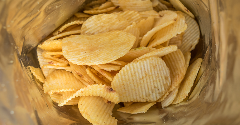
Ultra-processed food intake in South Africa at concerning levels, study suggests
19 Mar 2024
As South Africa considers introducing front-of-pack warning labels and strict marketing limits for unhealthy foods, research has found that low-income South Africans get around half of their calories from ultra-processed foods (UPFs) – “a cause for con...
Read more
India’s mithai market develops new ingredient and flavour profiles
18 Mar 2024
Mithai is a hugely popular dessert and sweet snack in India and manufacturers are experimenting with unique ingredients, new flavour combinations, and healthier versions to capture new audiences.
Read more
Unilever and Perfect Day’s animal-free dairy dessert: Is precision fermentation the future of dairy?
6 Mar 2024
Perfect Day, a precision fermentation dairy supplier, has partnered with Unilever's Breyers, a brand of ice cream and frozen dairy desserts, to launch Breyers lactose-free chocolate frozen dessert.
Read more
Macauba oil emerges as potential rainforest-friendly palm oil alternative
1 Mar 2024
Producers and researchers consider the rainforest-friendly credentials of Macauba palm oil and whether its sustainability credentials offer an opportunity to replace palm oil.
Read more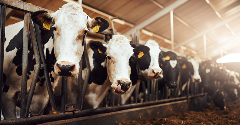
EU backtracks on food and farming sustainability targets
13 Feb 2024
A European Commission proposal has recommended a 90% net reduction in greenhouse gas emissions (GHGs) by 2040 but has dropped original references to the role of agriculture and dietary changes in achieving this.
Read more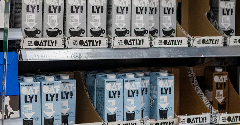
UK High Court allows Oatly to use 'milk' on packaging
17 Jan 2024
Oatly has scored a landmark victory in the use of the word milk after the UK High Court ruled against the country’s dairy industry and permitted the term to be used on packaging.
Read more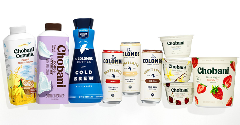
Chobani expands drink presence with La Colombe acquisition
16 Jan 2024
Greek yoghurt giant Chobani has purchased US coffee brand La Colombe Coffee Roasters for $900 million, furthering its expansion into beverage categories like coffee, oat milk, creamer and ready-to-drink offerings.
Read more
How brands are overcoming challenges in the plant-based sector
16 Jan 2024
Following the turbulent evolution of the plant-based market in recent years, industry players are finding innovative ways to tackle challenges such as taste, price, and nutrition and are in turn unlocking new opportunities for growth.
Read more
Mapping the rise and fall and (rise, again?) of the plant-based sector
15 Jan 2024
Recent challenges in the plant-based sector such as consumer acceptance and price inflation led to dips in certain regions while others surged. Kalina Doykova, senior research analyst at Euromonitor, shares her insights into the evolution and future tr...
Read more
Meet the innovative ingredients showcased at Fi Europe’s New Product Zone
3 Jan 2024
The Food Ingredients category at Fi Europe’s New Product Zone featured 19 distinct and innovative products. From fermented delights to sustainable proteins, these ingredients are ready to make their mark in the market.
Read more